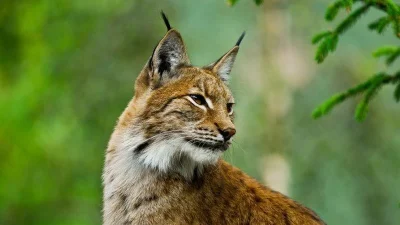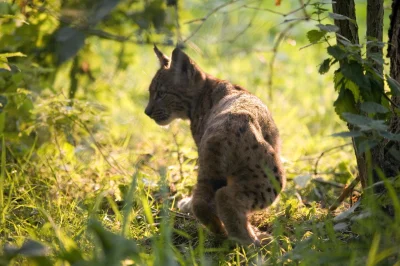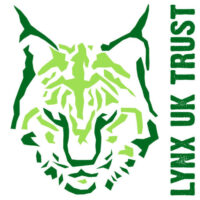Our Mission
Lynx UK Trust’s mission is clear: we will restore an apex predator to the UK, by bringing home the lynx. Through this we will help to restore our ecosystems, enhance biodiversity, and boost ecotourism, for the benefit of generations to come.
"We need healthy, functioning ecosystems. And you cannot have that without apex predators"

Appropriate forest land has already been secured by the Lynx UK Trust
Bring The Lynx Home
To reintroduce the lynx to the UK, starting with a controlled trial in Kielder Forest, the largest single forest block in the Uk covering 650 sq km’s. As one of the only countries in Europe without the breathtaking lynx, they have been successfully reintroduced to several European countries including Germany, Switzerland and Poland. Incredibly, they have naturally returned to others such as Holland and Belgium where they have been warmly received. If it wasn’t for the English Channel, there is no doubt that lynx would have already naturally recolonised the UK.
Research shows that in the UK there is enough suitable habitat to support a population upwards of 400 lynx., and there is compelling evidence that, within England, Kielder is the best candidate site for a trial reintroduction, and that such a trial would be successful.

Apex predators are essential to rewilding the UK
Saviour of Our Woodland
Lynx will breathe life into the UK’s woodlands, promote natural forest regeneration and promote biodiversity.
Reintroducing lynx is part of the bigger picture. Keystone species, like the lynx, can help to restore balance in their native ecosystems and create healthier habitats, therefore increasing biodiversity. This increased biodiversity leads to an increase in ecosystem health and resilience. It is hard to overstate the importance of native apex predators in relation to ecosystem health.
The introduction of an apex predator also suppresses the population of mesopredators- smaller carnivores which sit below apex predators in the food chain, such as red foxes. In the absence of an apex predator, populations of mesopredators can explode, causing damage to the entire ecosystem through over abundance and over predation.

Apex predators are essential to rewilding the UK
Ecological Tourism
We wish to provide the opportunity to witness the footprints that have not stepped on UK soil in over 1,300 years.
Responsibly and sustainably managed ecotourism will be an important part of the project. This also brings massive education and outreach opportunities, which is so important for the future of conservation.
An analysis of the annual expenditure lynx tourism could bring to Kielder (one of the proposed rehoming sites) during a 5 year trial found a potential value of £8,589,851 per year.
A population of lynx has the potential to be a major attraction for people visiting the area, and with that comes economic benefit.
In the Harz mountains in Germany, which reintroduced lynx in 2000, over half of the people visiting the area stated that lynx were an important factor influencing their decision (54%).
The lynx reintroduction in the Harz mountains, Germany, is estimated to bring in between 8 and 13 million pounds to the region each year.
Can You Help To Bring The Lynx Home?
Our campaign cannot happen without your support. Sign our petition today, and help us to retrace the ancient steps of the UK’s natural apex predator, the beautiful lynx.
Your donations go directly to making this project come to life.
LYNX UK TRUST COMMUNITY INTEREST COMPANY
Company number 09386570
Registered office address:
102 St. Asaph Business Park, St. Asaph, Wales, LL17 0JE
